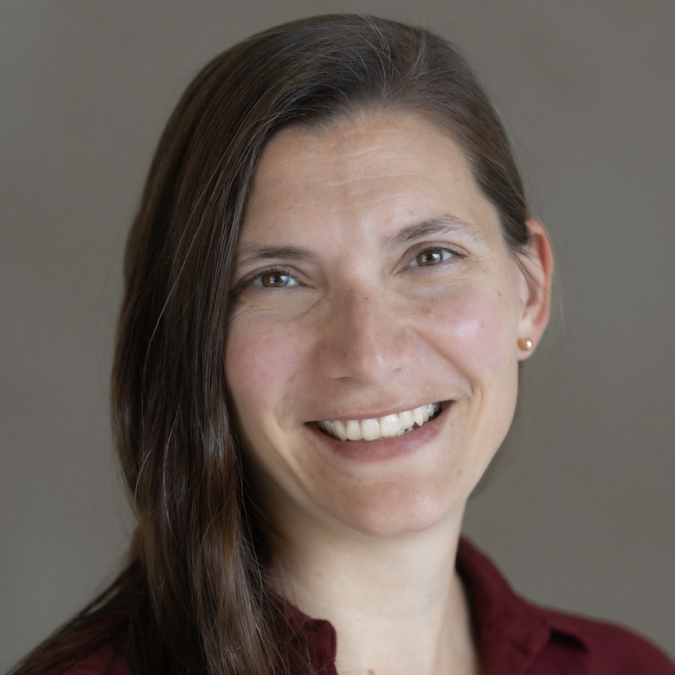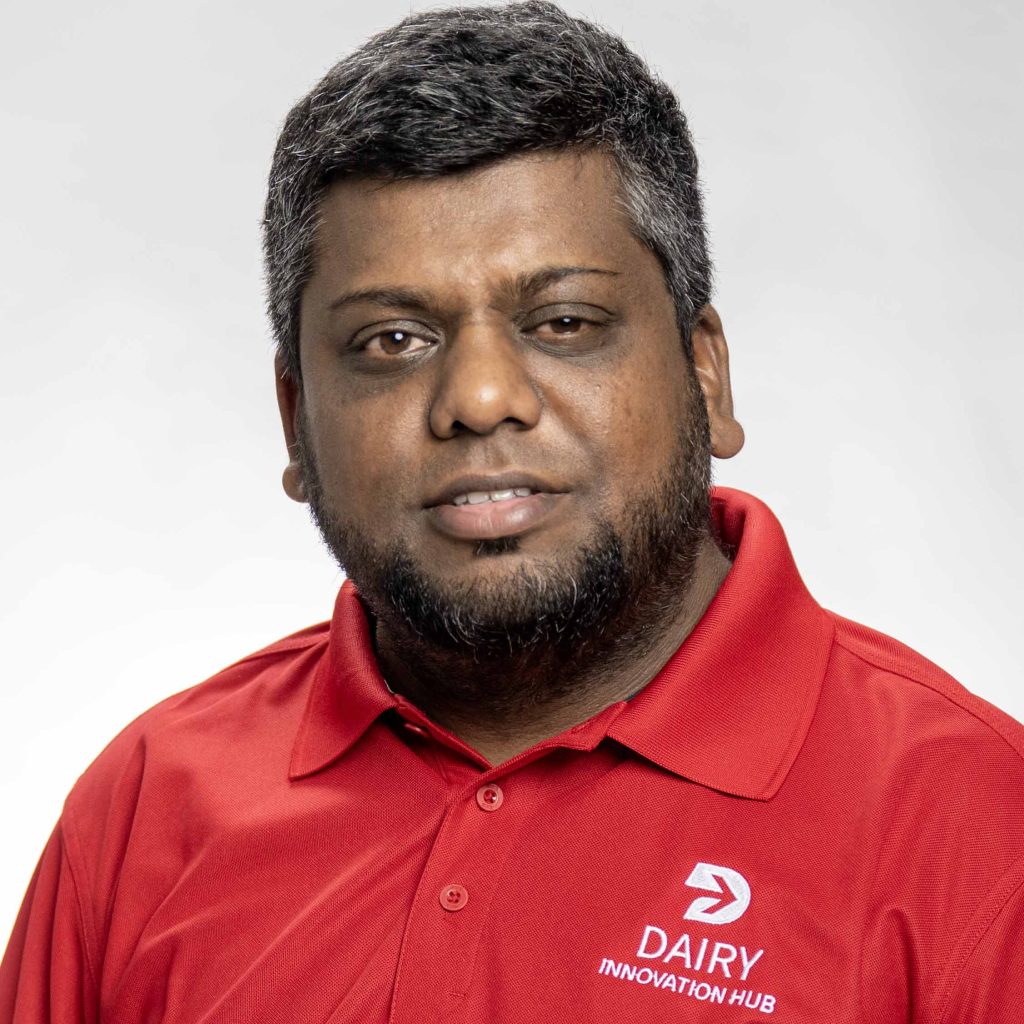Four faculty members were recently hired at UW–Madison and UW–River Falls with funding from the Dairy Innovation Hub. These new scientists will support work in the Hub’s four priority areas: stewarding land and water resources, enriching human health and nutrition, ensuring animal health and welfare, and growing farm business and communities.
The Dairy Innovation Hub, funded through a $7.8 million per year investment by the state of Wisconsin, harnesses research and development across the UW–Madison, UW–Platteville and UW–River Falls campuses ensuring that Wisconsin’s $52.8 billion dairy community remains a global pacesetter in producing nutritious dairy products. This is all accomplished with a keen focus on economic, environmental, and social sustainability.
Four new faculty members join fourteen that were already in place from previous rounds of hiring. All Hub-funded faculty collaborate with each other and leverage the unique resources across UW–Madison, UW–Platteville, and UW–River Falls.
AT UW–MADISON
Yun Jiang, Department of Animal and Dairy Science

Jiang is an assistant professor in animal and dairy sciences with a focus in dairy nutrition. Her research aims to develop nutritional strategies that enhance ruminal fermentation and feed efficiency, while also reducing environmental impacts like methane emissions. Additionally, she works on improving feed quality and safety in the dairy industry. Jiang’s appointment began in August of 2024.
Prior to joining UW–Madison, Jiang was an assistant professor at Kentucky State University. She earned both her master’s and PhD in animal science, with a specialization in ruminant nutrition, from the University of Florida.
Her position is part of RISE-EARTH, the sustainability-themed focus area of the university’s Wisconsin RISE Initiative strategic hiring effort to solve grand challenges.
Jiang views dairy cattle as a key solution for feeding a growing population with limited resources. “I developed an interest in dairy nutrition in college when I gained an understanding of how dairy cows can convert human-inedible feed – such as grass and agricultural byproducts like rice straw – into milk,” she says.
Gregg Sanford, Department of Soil and Environmental Sciences

Sanford is an assistant professor in soil and environmental sciences with a focus on soil carbon and cropping systems ecology. He has designed and implemented over 20 on-farm research trials and has more than a decade of experience with long-term, large-scale cropping experiments at the University of Wisconsin’s research stations. Sanford’s appointment began in August of 2024.
Sanford spent every summer on his family’s small dairy farm in Viola, Wisconsin. Those summer experiences had a lasting impact, and after earning a BA in Biology from New College of Florida, he set his focus on farming. After working on several farms, Sanford earned his master’s and PhD in agronomy at UW–Madison.
His position is also part of RISE-EARTH, the sustainability-themed focus area of the university’s Wisconsin RISE Initiative strategic hiring effort to solve grand challenges.
Agricultural systems and the impact of management on soil carbon sequestration and climate resilience are a key focus for Sanford. “While working on farms in my early 20s, I learned about the interconnectedness of crops, soils, water, and climate,” he says. “I realized that agriculture had the potential to alleviate or exacerbate many of the problems facing society. I wanted to be part of the solution.”
Rebecca Smith, Department of Plant and Agroecosystems Sciences
Smith is an assistant professor in plant and agroecosystem sciences focusing on plant science for dairy sustainability. She is also a co-investigator in the Great Lakes Bioenergy Research Center and a trainer in the agronomy, agroecology and plant breeding and plant genetics programs. The Smith lab focuses on how to genetically engineer the plant cell wall in forage and bioenergy crops to improve plant digestibility, animal nutritio

n, and dairy sustainability. Smith’s appointment began in August of 2024.
After earning a PhD in botany at the University of British Columbia, Smith joined the Great Lakes Bioenergy Research Center as a postdoctoral researcher and continued as a scientist until accepting this new role.
Her position is also part of RISE-EARTH, the sustainability-themed focus area of the university’s Wisconsin RISE Initiative strategic hiring effort to solve grand challenges.
Smith is eager to further explore the cell wall and lignin to tackle various challenges associated with dairy sustainability. “As
part of the Dairy Innovation Hub, my lab will work to leverage the power of the cell wall to improve digestibility, reduce methane emissions, and increase carbon sequestration,” she says. “We aim to find strategies that will address farmers’ biggest challenges with the forage crops they grow.”
About UW–Madison:
The College of Agricultural and Life Sciences (CALS) is part of the University of Wisconsin–Madison, both the flagship and land grant university of Wisconsin. CALS educational and research programs cover fields ranging from physical and life sciences to social science. More than 3,800 undergraduate and 900 graduate students make up CALS 15 academic departments, including 25 undergraduate majors and 47 graduate programs. Research is at the foundation of CALS activities, supported by the 11 agricultural research stations around the state and more than $150 million in funding awarded to CALS faculty and staff since 2024.
AT UW–RIVER FALLS
Md Azhar Uddin, Department of Agricultural Economics

Uddin is an assistant professor of agriculture economics. As part of this position, he conducts dairy-related research on topics such as agribusiness marketing, behavioral and experimental economics, health economics and other relevant topics. Uddin’s appointment began in August of 2024.
In addition to his research, Uddin teaches and advises students in ag business, marketing communications, and related programs.
Uddin earned a PhD in food and resource economics from the University of Florida in Spring 2024. Prior to his time at Florida, Uddin was an assistant professor at the University of Dhaka, Bangladesh, and a researcher for a leading non-profit also in Bangladesh.
“My research focuses on understanding Wisconsin dairy farm exit and expansion along with their impact on communities and businesses,” he says. “Additionally, I’m exploring opportunities to enhance UW–River Falls’ capacity to support dairy processors by establishing a choice and sensory lab.” In addition to research, Uddin’s outreach efforts aim to translate research findings into practical strategies that enhance farm resilience, economic sustainability, and rural development.
About UW–River Falls:
The College of Agriculture, Food and Environmental Sciences at the University of Wisconsin-River Falls enrolls 1,300 undergraduate students across 16 different majors. Two laboratory farms, a greenhouse complex, food processing plants, including a newly renovated dairy pilot plant, specialized laboratory facilities, intercollegiate competitive teams, and a very successful industry internship program, contribute to the College’s active learning environment which emphasizes hands-on experiences in real world settings. UW–River Falls is located on 226 acres 30 miles from downtown St. Paul, Minn., and is a leader in exemplary teaching, undergraduate research, and sustainability efforts.



Comments